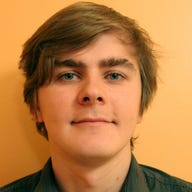This tiny IoT startup thinks its networking tech can help spread smart lighting


Thinnect hopes to introduce a lighting control system, which could then become a de facto IoT standard.
If you're asked to name a country that's a frontrunner in the promising field of the Internet of Things, Estonia may not immediately spring to mind. But one company wants to change that.
Thinnect is a startup founded just two years ago to focus on developing technology that enables management of the last 100 meters of IoT networks.
Its technology is already being used in five countries to manage lighting, heating, and cooling systems in buildings as well as in intelligent street lighting deployed in cooperation with another Estonian company, Cityntel.
In May, it secured funding in excess of $1.7m, from existing and new investors, including Silicon Valley's Band of Angels.
That funding and another recent development make Thinnect CEO Jurgo Preden believe Estonia's potential can be realized in IoT. His firm was one of 15 local companies, organizations, and universities that decided last October to found a non-profit association to develop Estonian IoT tech.
"Many companies have recognized the opportunity and have started development of products, which may attract broader adoption," Preden tells ZDNet.
Thinnect itself is actually a spinoff. Its roots can be traced back to the Estonian company Defendec, which supplies border-patrol technology to more than 20 countries. Two years ago the founders of Defendec decided to spin off its communication technology arm under some key engineers and Defendec's then CTO Preden.
Right now Thinnect employs 14 people. Like many of the country's startups, the engineering team is located in Estonia while the management team is in Silicon Valley. Thinnect's first big customer was street-lighting firm, Estonia-based Cityntel.
"In addition to Cityntel we've engaged multiple customers globally. We did a pilot project with Philips Lighting in Silicon Valley in 2016. We've multiple companies in lighting using our technology to enhance their products with intelligent controls, and we have a few customers who are in the evaluation phase," Preden says.
In January the company signed an agreement with an unnamed lighting company, described as tier 1 by Preden, to use Thinnect technology in its intelligent lighting product, which will be offered to its 30,000 customers globally.
Preden argues that although many companies address the last 100 meters of IoT connectivity, there is no clear global market leader where Thinnect is operating.
"Most are based on Zigbee technology and have been developed inhouse by companies that are not experts in connectivity, but which focus on delivering their product for lighting, industrial monitoring, tracking or any other of the dozens of IoT applications."
IoT has been sold for years as the next new world-changing innovation, but so far it hasn't really taken off.
"No killer applications have emerged, which would drive down the cost of the technology and justify investment in the development of scalable solutions," he says.
"At the same time the existing technologies have significant overheads in the deployment and management phases, which make the applications based on these technologies economically unfeasible."
He argues that Thinnect's technology helps to change that feasibility, because products based on its technology can be deployed without training. "An electrician can install the devices, and we manage the deployed solutions automatically from the cloud, ensuring application reliability," Preden says.
The main problems in global IoT development and wider implementation lie in lack of cooperation and standards.
"The biggest innovation will come when IoT products become so commonplace and easy to use that they're everywhere," he says. "Right now, numerous IoT products have been deployed. But these are all niche solutions that do not talk to each other. They are tailormade for specific applications."
He predicts there'll be seamless interoperability and zero-touch deployment of IoT devices, which will also make many applications economically feasible, which they are not now.
"There's no single technology or company that would enable this. Rather multiple companies must work together to achieve this. Thinnect can clearly contribute with our plug-and-play commissioning and multi-application support," Preden says.
His company's biggest goal for the near future is to introduce a lighting control system to the market in collaboration with its tier-one partner, which could then become a de facto standard for the industry.
"The main challenges are the slow adoption rate of new technologies in this market and the capability of the market to understand the opportunities offered by this new technology," he says.
Read more from Estonia
- Bike thieves beware: This startup is using smart tech to reinvent cycle parking
- Borderless banking: Estonia's e-residents can open accounts without going there
- Why this startup thinks its supercapacitor tech is key to hybrid electric vehicles
- Estonia has 1.3 million people: Here's how it plans to get 10 million e-residents by 2025
- Like the sound of 10-gigabit internet everywhere? Then move to Estonia